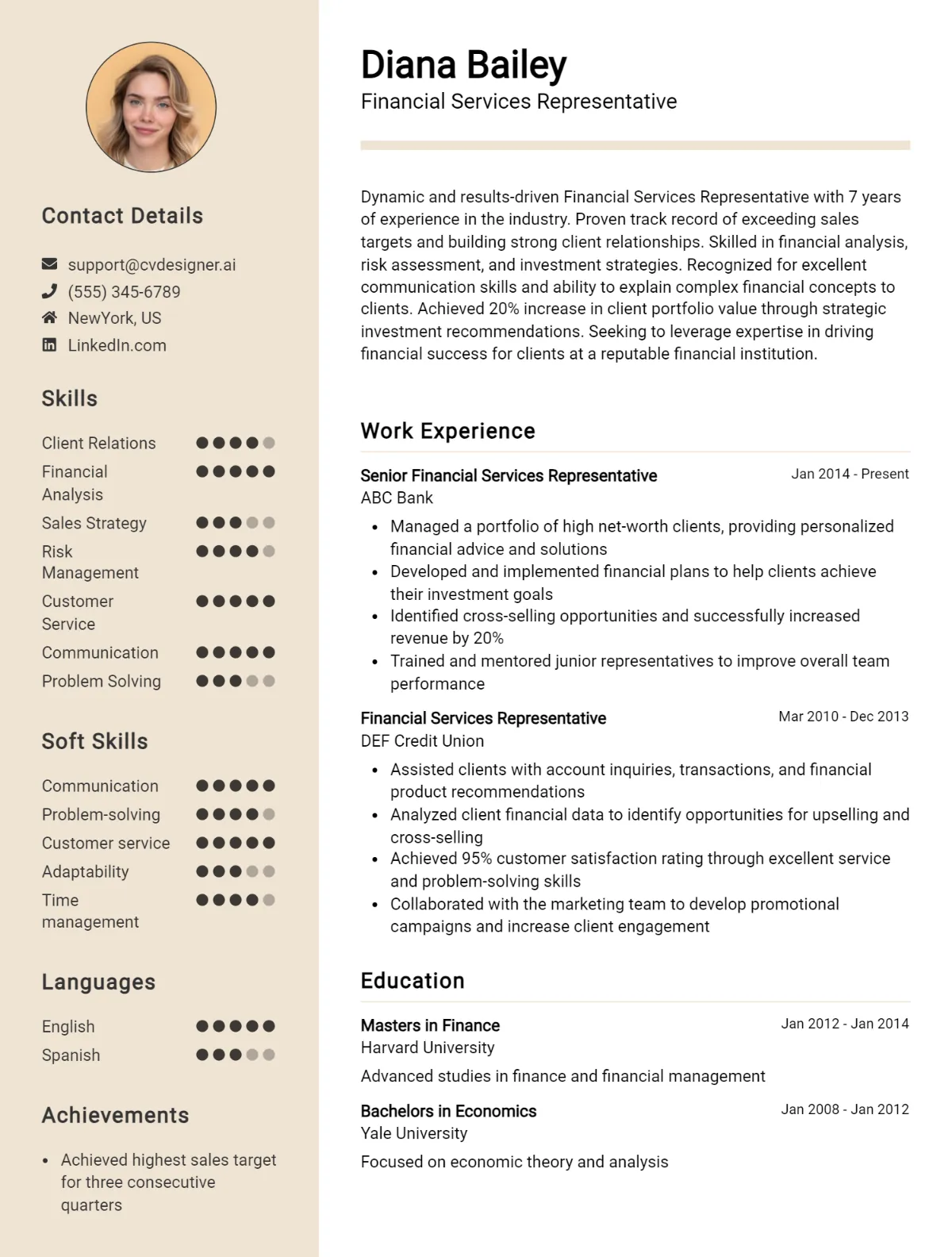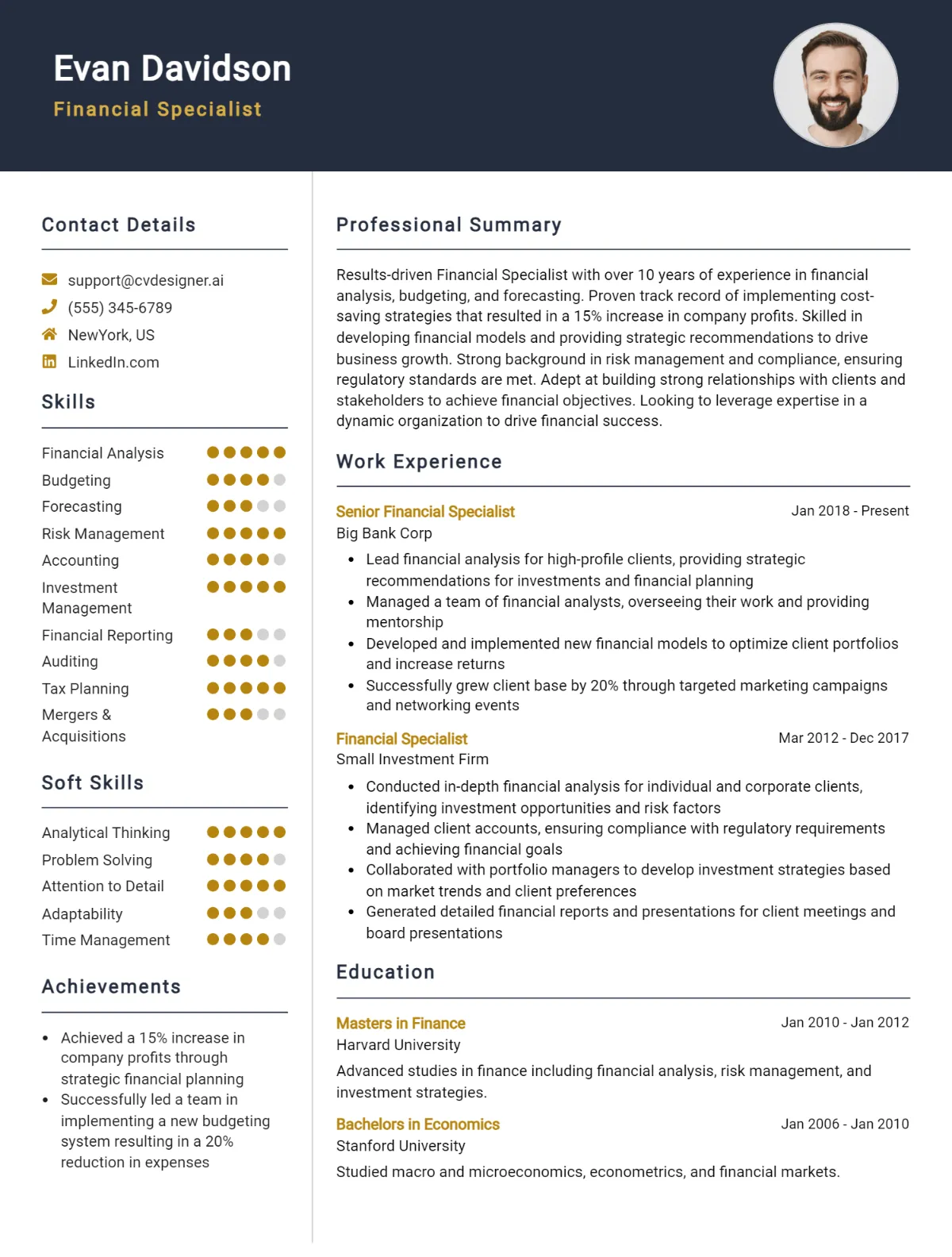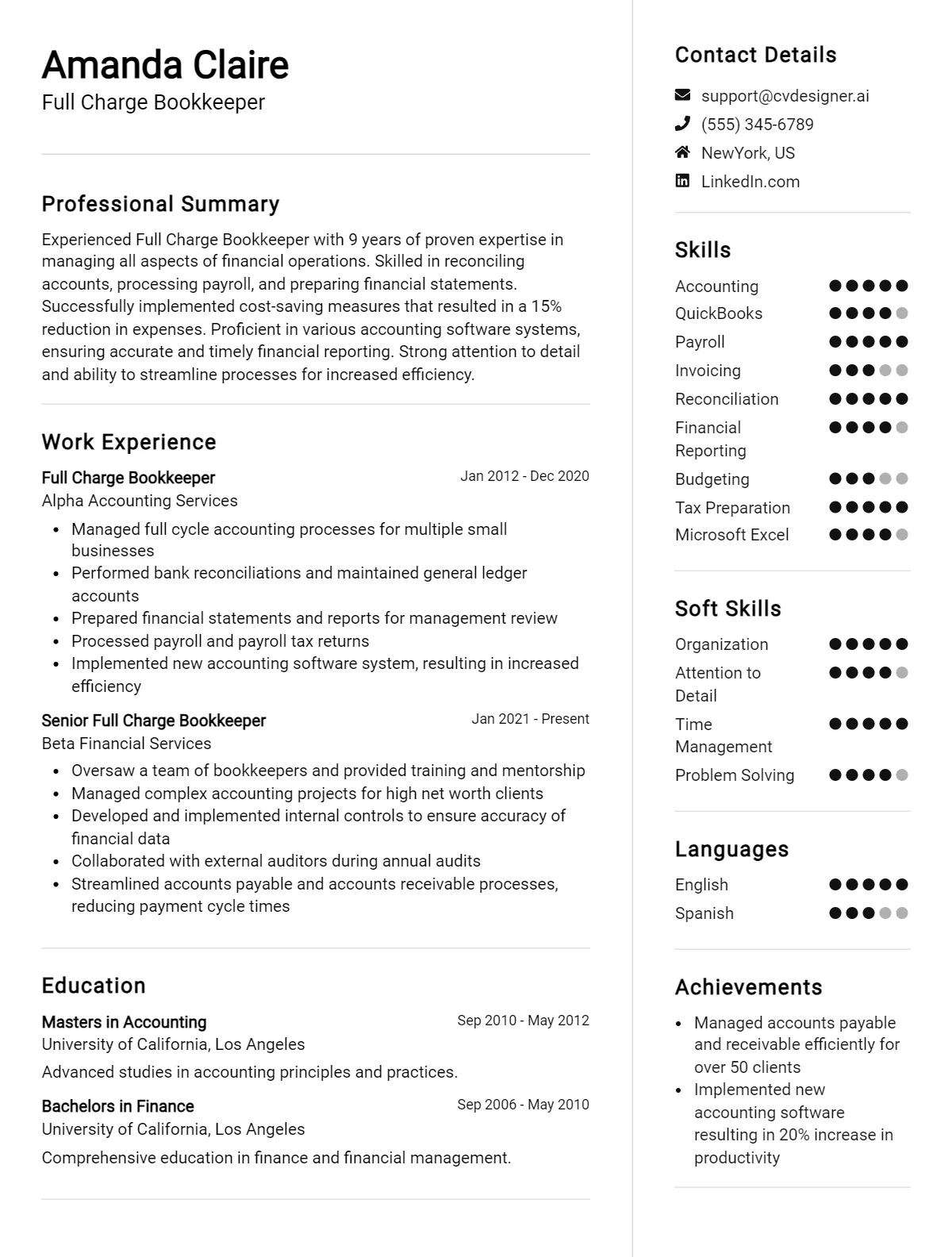Creating a compelling CV (Curriculum Vitae) is an essential step in the job application process. A well-crafted CV not only highlights your qualifications and experiences but also sets you apart from other candidates. This guide will walk you through each step of writing a CV, from understanding what a CV is to tailoring it for specific job applications. By the end, you’ll be equipped with the knowledge to create a standout CV that catches the eye of potential employers.
What is a CV?
A Curriculum Vitae, commonly known as a CV, is a detailed document that outlines your professional and academic history. Unlike a resume, which is typically concise, a CV provides a comprehensive overview of your career, including your education, work experience, skills, and achievements. It’s commonly used in academic, medical, and research professions but is also required for job applications in many countries outside of North America. The length and detail of a CV make it an in-depth look at your career, which is particularly important in fields that value extensive experience and detailed knowledge.
In many parts of the world, a CV is the standard document used for job applications, making it essential to understand its format and content. It serves as a snapshot of your professional journey, showcasing your qualifications and career progression. A well-crafted CV can set you apart from other candidates by providing a detailed and clear picture of your professional capabilities and accomplishments.
Importance of a CV
A CV is often the first impression you make on potential employers. It’s a tool that showcases your qualifications and helps you stand out in a competitive job market. Employers use CVs to quickly assess whether a candidate has the necessary skills, experience, and qualifications for a job. Therefore, a well-written CV can open doors to job interviews and career opportunities, making it a critical component of your job search strategy.
Moreover, a CV provides a platform for you to highlight your unique strengths and experiences. By tailoring your CV to the specific job you’re applying for, you can emphasize the aspects of your background that are most relevant to the employer. This tailored approach demonstrates your attention to detail and your genuine interest in the position, increasing your chances of making a positive impression.
Use our Best CV Templates
Discover our top-tier CV templates, meticulously designed to make a lasting impression. Choose from a variety of professional layouts to enhance your career prospects.
Preparing to Write Your CV
Research and Preparation
Before you start writing your CV, take the time to research the job you’re applying for. Understand the skills and qualifications required and think about how your experience aligns with these requirements. This will help you tailor your CV to the job and make it more relevant to potential employers. Researching the company’s culture and values can also give you insights into what to highlight in your CV, showing that you’re a good fit for their team.
Additionally, looking at the job descriptions of similar roles can provide further context on what employers are looking for. This research phase is crucial because it allows you to align your CV with the expectations of the industry and the specific role, making your application more compelling.
Gather Your Information
Collect all the necessary information you’ll need to include in your CV. This includes your contact information, educational background, work experience, skills, certifications, and any other relevant details. Having this information on hand will make the writing process smoother and more efficient. Organize your documents and notes so you can easily reference them while writing.
Take this time to also reflect on your career achievements and how best to present them. Think about the specific projects you’ve worked on, the results you’ve achieved, and any accolades you’ve received. This reflection will help you craft a more powerful and detailed CV that truly represents your professional journey.
Structure of a CV
Contact Information
Your contact information should be at the top of your CV and should include your full name, phone number, email address, and LinkedIn profile. Make sure your email address is professional and avoid using nicknames or informal handles. Including a link to your LinkedIn profile allows employers to see a more dynamic view of your professional background and network.
Example:
John Doe
Phone: (123) 456-7890
Email: john.doe@example.com
LinkedIn: linkedin.com/in/johndoe
Your contact information should be clear and easy to find, as this is the information potential employers will use to reach out to you. Double-check your details for accuracy to avoid any mistakes that could prevent you from receiving important communications. Keeping this section concise yet informative sets a professional tone for your CV.
Personal Statement
The personal statement, also known as a career objective or summary, is a brief section at the beginning of your CV. It provides an overview of your professional background and career goals. This section should be tailored to the job you’re applying for and highlight your most relevant skills and experiences. A strong personal statement can grab the employer’s attention and encourage them to read further.
Example:
“A highly motivated marketing professional with over five years of experience in digital marketing and social media management. Seeking to leverage my skills and expertise to drive brand awareness and engagement for XYZ Company.”
This section should be succinct yet impactful, offering a snapshot of who you are as a professional and what you bring to the table. Avoid generic statements and focus on what makes you unique. A well-crafted personal statement can effectively set the tone for the rest of your CV.
Education
List your educational qualifications in reverse chronological order, starting with your most recent degree. Include the degree, institution, location, and dates of attendance. If relevant, you can also include your GPA, honors, and relevant coursework. Detailing your education helps employers understand your academic background and areas of expertise.
Example:
Master of Business Administration (MBA)
XYZ University, Los Angeles, CA
September 2018 – June 2020
- GPA: 3.8/4.0
- Relevant Coursework: Marketing Strategy, Financial Management
Including relevant coursework can be particularly beneficial if it aligns with the job you’re applying for. For recent graduates or those with limited work experience, this section can highlight your academic strengths and specialized knowledge. Ensure that the information is clear and easy to follow, making it simple for employers to assess your educational background.
Work Experience
Your work experience section should also be listed in reverse chronological order. Include the job title, company name, location, and dates of employment. For each position, provide a brief description of your responsibilities and achievements. Use action verbs and quantify your achievements with metrics whenever possible. For a more detailed guide on this, you can visit our comprehensive article on work experience.
Example:
Digital Marketing Manager
ABC Company, New York, NY
January 2020 – Present
- Developed and executed digital marketing strategies that increased website traffic by 30%.
- Managed social media accounts, resulting in a 25% increase in follower engagement.
- Collaborated with the sales team to create targeted email campaigns, boosting lead generation by 20%.
This section should provide a clear and detailed overview of your career progression, highlighting key responsibilities and achievements. Focus on accomplishments that demonstrate your ability to contribute effectively to an organization. By quantifying your achievements, you provide concrete evidence of your impact, making your CV more compelling.
Skills
The skills section is where you highlight your abilities and competencies. It’s important to include a mix of hard skills, soft skills, and functional skills. Organize your skills in bullet points or categories to make them easy to read. For a detailed breakdown, check out our article on set of skills.
Example:
Technical Skills
- Proficient in Adobe Creative Suite (Photoshop, Illustrator, InDesign)
- Advanced knowledge of Microsoft Excel and data analysis
Interpersonal Skills
- Excellent communication and presentation skills
- Strong problem-solving and critical thinking abilities
Categorizing your skills helps employers quickly see where your strengths lie. Be specific and avoid generic skills that don’t add value to your CV. Tailor this section to highlight the skills most relevant to the job you’re applying for, showing that you have the qualifications the employer is seeking.
Certifications and Awards
Include any relevant certifications and awards that demonstrate your expertise and dedication to your field. List them in reverse chronological order and provide the name of the certification or award, the issuing organization, and the date received. This section can help differentiate you from other candidates by showcasing your commitment to professional development.
Example:
Certified Digital Marketing Professional (CDMP)
Digital Marketing Institute, April 2021
Employee of the Year
ABC Company, 2020
Highlighting certifications and awards adds credibility to your CV and underscores your professional achievements. These accolades can also show that you are proactive about your career growth and staying updated with industry standards. Including such details can make a strong impression on potential employers.
Hobbies and Interests
Including hobbies and interests can give employers insight into your personality and potential cultural fit. However, only include those that are relevant or that demonstrate valuable skills. For example, volunteering can show leadership and a sense of community, while participating in sports can indicate teamwork and dedication.
Example:
- Volunteer Work: Organize community events and fundraisers.
- Sports: Member of a local soccer team, demonstrating teamwork and leadership skills.
This section should be brief but can be an excellent way to showcase additional dimensions of your personality. Choose hobbies and interests that reflect positively on you and are somewhat relevant to the job you’re applying for. This adds a personal touch to your CV and can help you connect with potential employers on a more personal level.
Writing Tips for a Compelling CV
Use Action Verbs
Action verbs make your CV dynamic and engaging. Words like “managed,” “developed,” “led,” “designed,” and “implemented” convey a sense of action and accomplishment. Using strong action verbs helps paint a picture of you as an active and capable professional who can make significant contributions to an organization.
When describing your work experience and skills, avoid passive phrases and instead focus on what you did and achieved. This not only makes your CV more engaging but also emphasizes your role in your past successes. Active language can significantly enhance the impact of your CV.
Be Specific and Quantify Results
Specificity and quantification are crucial in demonstrating your value. Instead of simply stating that you increased sales, specify by how much and how you achieved it. For example, “Increased sales by 20% through the implementation of a new marketing strategy” is more impactful than a vague statement.
Quantifying your achievements provides concrete evidence of your capabilities and impact. Use numbers, percentages, and data to back up your claims, making your accomplishments tangible and impressive. This approach can significantly strengthen your CV by clearly illustrating your contributions.
Tailor Your CV to the Job Description
One of the most effective ways to make your CV stand out is to tailor it to the job description. Carefully read the job posting and highlight the key skills and experiences the employer is looking for. Then, adjust your CV to emphasize these qualifications, showing that you’re a perfect fit for the role.
Tailoring your CV demonstrates that you’ve taken the time to understand the job and are genuinely interested in the position. This attention to detail can make a significant difference in how your application is perceived. Each job application should have a slightly adjusted CV that matches the specific requirements and preferences of the employer.
Highlight Relevant Skills
When listing your skills, focus on those most relevant to the job you’re applying for. Refer to the job description to identify the key skills the employer is looking for and ensure these are prominently featured in your CV. Highlighting relevant skills can make your CV more appealing to hiring managers and increase your chances of landing an interview.
Including a mix of technical and interpersonal skills can demonstrate your well-rounded capabilities. For example, combining skills in project management with strong communication abilities shows that you can not only handle tasks but also collaborate effectively with team members.
Proofread and Edit
Finally, make sure to proofread and edit your CV carefully. Spelling and grammar mistakes can make a negative impression and suggest a lack of attention to detail. Consider asking a friend or colleague to review your CV as well, as a fresh pair of eyes can catch errors you might have missed.
Editing your CV is not just about correcting mistakes but also about refining the language and ensuring clarity. Make sure each section flows logically and that your CV presents a cohesive picture of your professional background. A polished and error-free CV demonstrates professionalism and can enhance your credibility.
Common Mistakes to Avoid
Being Too Vague
Vague descriptions of your skills and experiences can weaken your CV. Be as specific as possible to clearly convey what you bring to the table. Avoid generic statements and focus on concrete examples that highlight your achievements and capabilities.
Example:
Before:
- Good at communication
After:
- Excellent written and verbal communication skills, with experience in creating detailed reports and delivering presentations
Being specific helps employers understand exactly what you’ve accomplished and how you can contribute to their organization. It also makes your CV more engaging and easier to read, as it provides clear, detailed information about your qualifications.
Overloading with Information
While it’s important to showcase a range of skills and experiences, avoid overloading your CV with too much information. Focus on the most relevant and impactful details to avoid overwhelming the reader. Too much information can make your CV difficult to navigate and may cause important details to be overlooked.
Example:
Before:
Skills
- Communication
- Leadership
- Time management
- Project management
- Data analysis
- Problem-solving
- Teamwork
- Technical skills
After:
Skills
- Effective communication: Strong written and verbal communication skills, with experience in creating detailed reports and delivering presentations
- Leadership: Proven leadership skills, with experience managing teams of up to 10 people
- Project management: Successfully managed multiple projects, ensuring timely completion and adherence to budget constraints
- Data analysis: Proficient in analyzing large datasets to inform strategic decision-making using tools like Excel and SPSS
Focusing on the most relevant information makes your CV more concise and impactful. It ensures that the key qualifications you want to highlight are easily visible and can make a stronger impression on potential employers.
Using Generic Phrases
Generic phrases like “hard worker” or “team player” don’t provide much information about your actual skills. Be specific and provide examples to back up your claims. Generic statements can make your CV blend in with others, while specific details help you stand out.
Example:
Before:
- Hard worker
After:
- Consistently met and exceeded performance targets, demonstrating a strong work ethic and dedication to achieving results
Providing concrete examples of your work ethic and accomplishments makes your CV more compelling. It shows employers exactly how you’ve contributed in the past and the value you can bring to their organization.
Neglecting Soft Skills
While hard skills are crucial, neglecting soft skills can be a mistake. Employers look for well-rounded candidates who possess both technical abilities and interpersonal qualities. Highlighting your soft skills can demonstrate your ability to work effectively with others and adapt to different work environments.
Example:
Before:
- Technical skills: Python, Java, SQL
After:
- Technical skills: Proficient in Python, Java, and SQL
- Interpersonal skills: Strong team collaboration and communication abilities, with experience working in diverse team environments
Including soft skills provides a more comprehensive view of your capabilities. It shows that you’re not only technically proficient but also able to work well with colleagues and contribute positively to the workplace culture.
Not Tailoring to the Job
Failing to tailor your CV to the job you’re applying for can make your application less effective. Use the job description as a guide to highlight the most relevant skills and experiences. Tailoring your CV shows that you’ve taken the time to understand the role and are genuinely interested in the position.
Example:
If a job posting emphasizes project management and data analysis, make sure these skills are prominently featured in your CV.
Before:
Skills
- Project management
- Data analysis
- Time management
After:
Skills
- Project management: Successfully managed multiple projects, ensuring timely completion and adherence to budget constraints
- Data analysis: Proficient in analyzing large datasets to inform strategic decision-making using tools like Excel and SPSS
Tailoring your CV demonstrates your attention to detail and commitment to the application process. It shows that you’re serious about the role and have made an effort to present yourself as the ideal candidate.
Industry-Specific Tips
Tech Industry
Focus Areas
In the tech industry, emphasize your technical skills, programming languages, and relevant projects. Highlight your experience with specific technologies and tools, and demonstrate your ability to work on complex technical projects. Including detailed descriptions of your technical competencies can make your CV more attractive to potential employers.
Example:
Technical Skills
- Proficient in Python, Java, and C++
- Experience with web development using HTML, CSS, and JavaScript
- Familiarity with database management systems like SQL and MongoDB
Projects
- Developed a web application using React and Node.js, resulting in a 30% increase in user engagement
- Implemented machine learning algorithms to improve data analysis accuracy by 15%
Detailing specific projects and the technologies used provides concrete examples of your capabilities. It shows that you have practical experience applying your technical skills in real-world scenarios, which is highly valued in the tech industry.
Creative Industry
Focus Areas
For creative roles, showcase your creative skills, projects, and software proficiency. Highlight your ability to develop innovative solutions and create visually appealing designs. Including a portfolio link can also be beneficial, allowing employers to see examples of your work.
Example:
Creative Skills
- Proficient in Adobe Creative Suite (Photoshop, Illustrator, InDesign)
- Strong graphic design and layout skills
- Experience in video editing and animation
Projects
- Designed marketing materials for a major advertising campaign, resulting in a 25% increase in brand awareness
- Created a series of promotional videos that received over 100,000 views on social media platforms
Providing specific examples of your creative work demonstrates your ability to deliver visually impactful solutions. It also shows your versatility and proficiency with industry-standard software, making you a strong candidate for creative roles.
Healthcare Industry
Focus Areas
In the healthcare industry, emphasize your clinical skills, patient care experience, and any specialized training. Highlight your ability to provide high-quality care and work effectively in high-pressure environments. Including certifications and relevant training can also strengthen your CV.
Example:
Clinical Skills
- Proficient in patient assessment and diagnosis
- Experience in administering medications and treatments
- Strong knowledge of medical terminology and procedures
Experience
- Provided patient care in a fast-paced emergency department, handling up to 30 patients per shift
- Administered medications and treatments as prescribed by physicians, ensuring patient safety and compliance
Detailing your clinical skills and patient care experience provides a clear picture of your qualifications. It shows that you’re capable of handling the demands of the healthcare environment and providing excellent care to patients.
Business and Finance Industry
Focus Areas
For business and finance roles, emphasize your analytical skills, financial expertise, and contributions to business growth. Highlight your experience in budgeting, forecasting, and strategic planning. Including specific achievements and metrics can make your CV more impactful.
Example:
Analytical Skills
- Proficient in financial analysis and forecasting
- Strong knowledge of budgeting and financial modeling
- Experience in using Excel and financial software like QuickBooks
Achievements
- Conducted financial analysis and forecasting to support business decisions, resulting in a 10% increase in profitability
- Developed and maintained financial models, improving accuracy of budget projections by 15%
Providing specific examples of your financial analysis and strategic planning abilities demonstrates your value to potential employers. It shows that you have the skills and experience to contribute to the financial success of their organization.
The Role of CV Templates and Online Tools
Benefits of Using Templates
1. Time-Saving
Using CV templates can significantly reduce the time spent on formatting and layout. Templates provide a ready-made structure that you can fill in with your details, allowing you to focus more on content rather than design. This can be particularly beneficial if you’re applying for multiple jobs and need to create several tailored CVs quickly.
2. Professional Layouts
Templates offer professionally designed layouts that ensure your CV looks polished and well-organized. This can make a positive impression on potential employers, demonstrating your attention to detail and commitment to presenting yourself professionally. A well-designed CV can also enhance readability, making it easier for employers to quickly find the information they’re looking for.
3. Customization Tips
While templates provide a good starting point, it’s important to customize them to fit your unique qualifications and the job you are applying for. Adjust sections, fonts, and colors to reflect your personal brand and make your CV stand out. Customization allows you to tailor the template to highlight your strengths and match the style of the industry you’re applying to.
Best Practices
- Choose a Simple Template: Opt for templates that are clean and easy to read. Avoid overly complex designs that can distract from the content.
- Avoid Over-Designing: Keep the design professional and avoid excessive colors or graphics that can make your CV look cluttered.
- Customize for Each Job: Tailor your CV template for each job application to highlight the most relevant information. This demonstrates your dedication and attention to detail to potential employers.
CV Designer AI
Features
CV Designer AI offers a range of features to help you create a professional CV effortlessly. From customizable templates to AI-powered suggestions, it streamlines the CV creation process. The tool provides insights on best practices, recommends content, and ensures your CV is well-structured and tailored to the job you’re applying for.
Benefits
Using CV Designer AI can save you time and ensure your CV is well-structured and tailored to the job you are applying for. Its AI capabilities provide valuable insights and recommendations to enhance your CV, making it more likely to catch the eye of recruiters and hiring managers. The platform’s user-friendly interface allows you to create a polished and professional CV quickly and efficiently.
FAQs
How should I list skills if I have limited work experience?
Should I list skills that are not directly related to the job?
How often should I update my skills section?
How can I tailor my CV for different job applications?
Is it important to include a cover letter with my CV?
How should I handle employment gaps on my CV?
What is the best format for a CV: chronological, functional, or combination?
Conclusion
Writing a compelling CV is a crucial step in your job search. By understanding the different sections of a CV, from contact information to certifications, and tailoring each part to the job you’re applying for, you can create a standout document. Highlighting your skills, quantifying your achievements, and avoiding common mistakes will help you present yourself as a strong candidate.
Remember to tailor your CV to each job application, quantify your abilities whenever possible, and maintain consistent formatting. Utilize online tools like CV Designer AI to streamline the process and ensure a professional result. Tailoring your CV to match job descriptions can significantly increase your chances of getting noticed by hiring managers.
Ready to create a standout CV? Visit CV Builder and use our advanced tools and templates to craft the perfect CV for your next job application. The intuitive interface and AI-powered suggestions will help you highlight your skills in the best possible way, ensuring you make a strong impression on potential employers.







